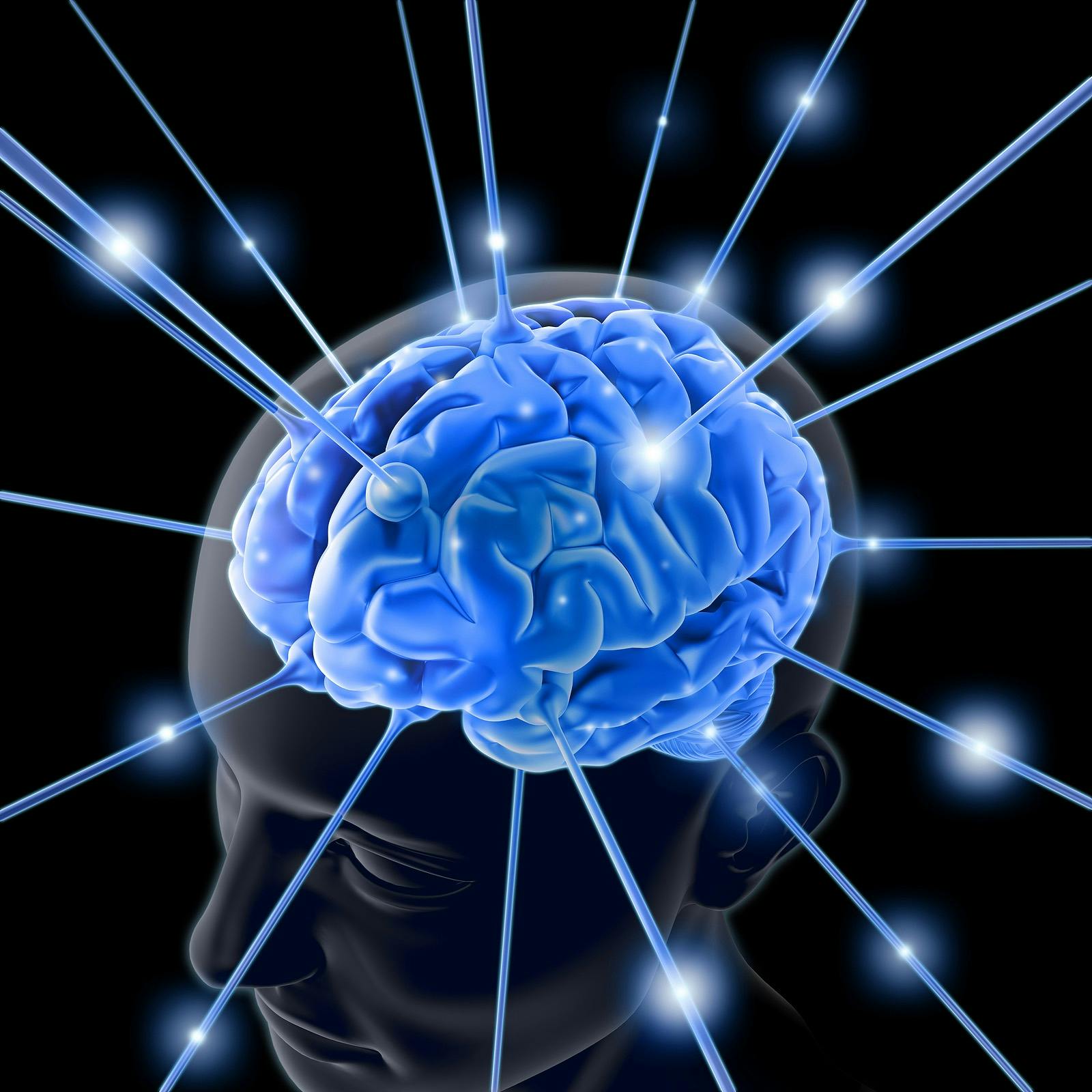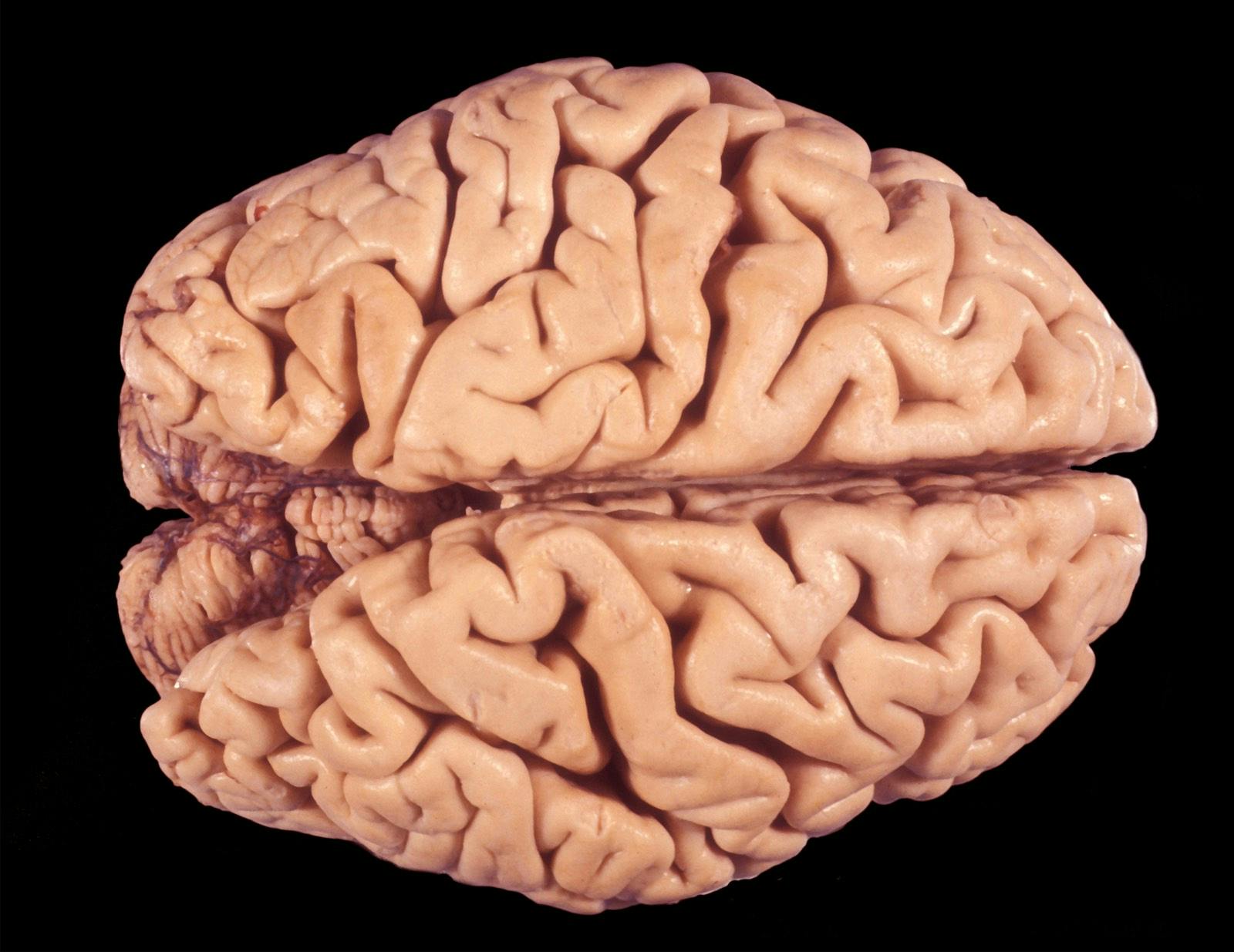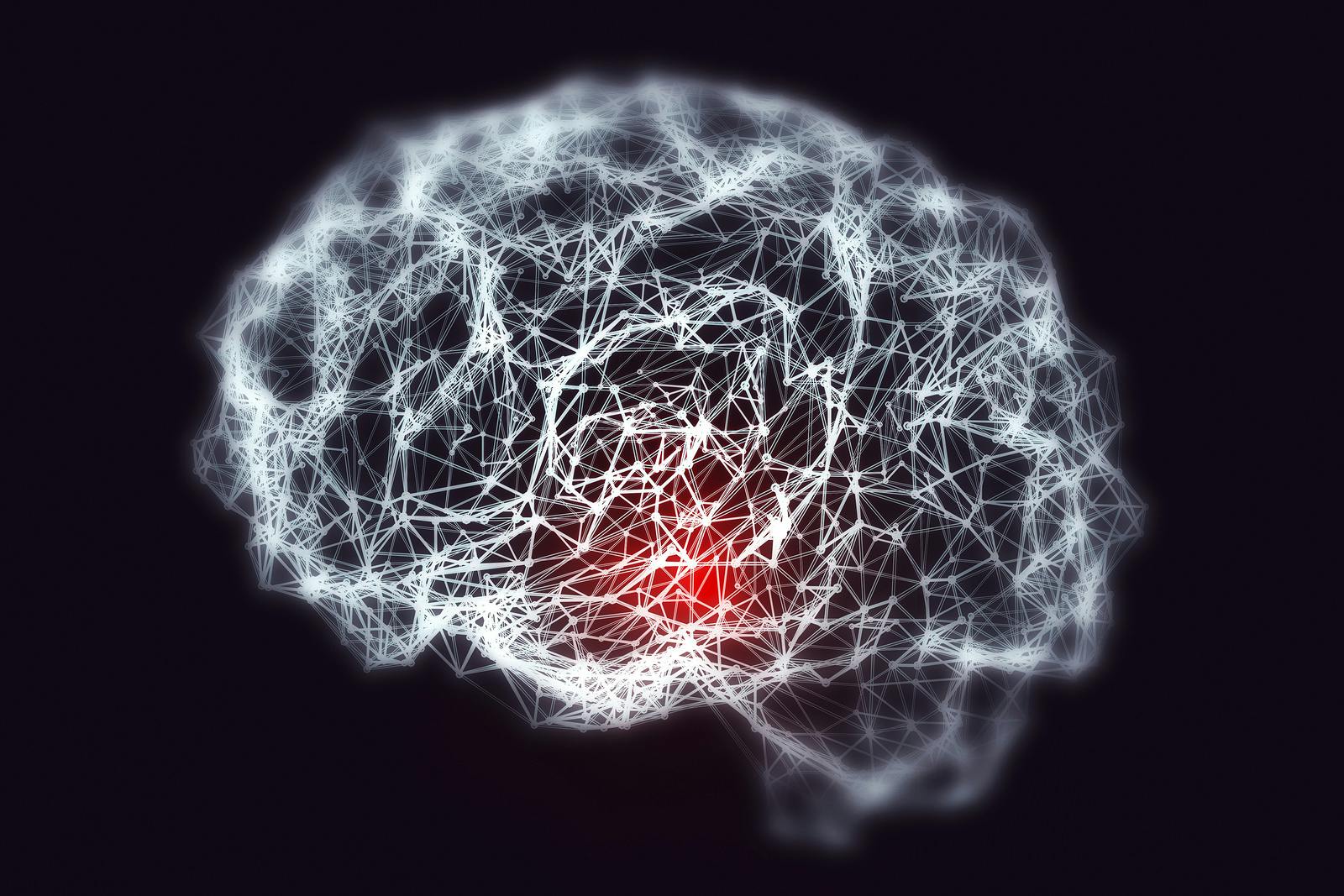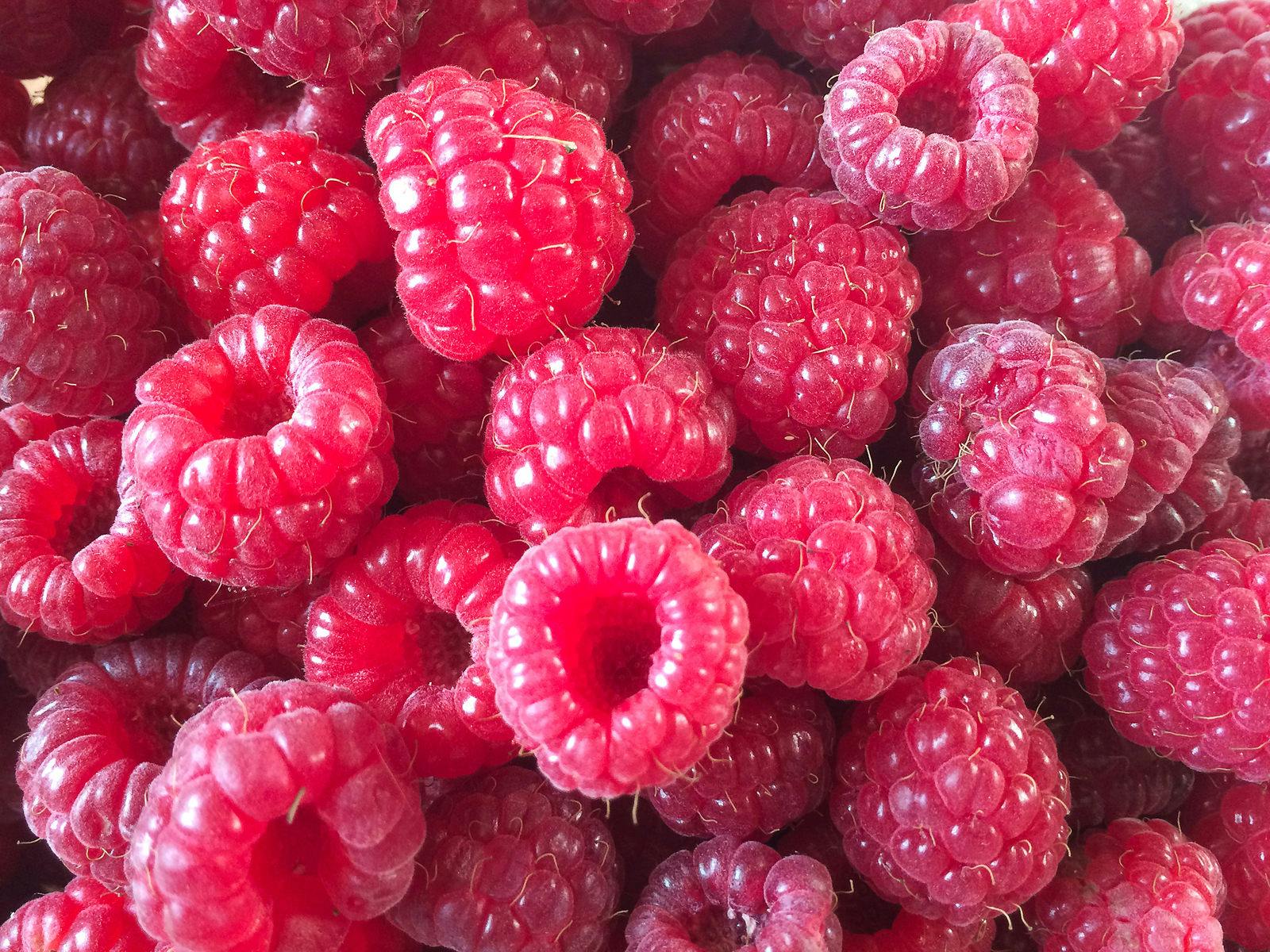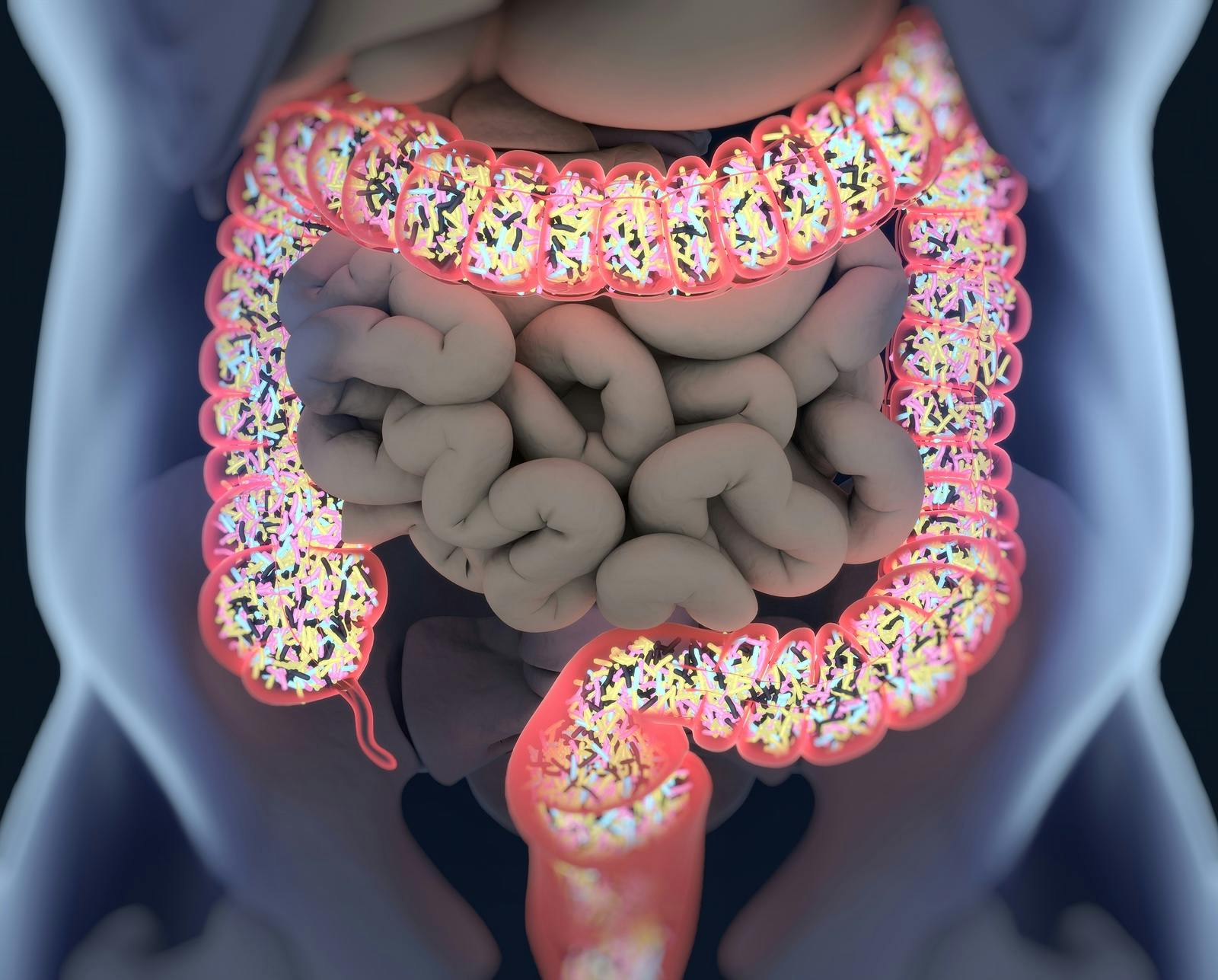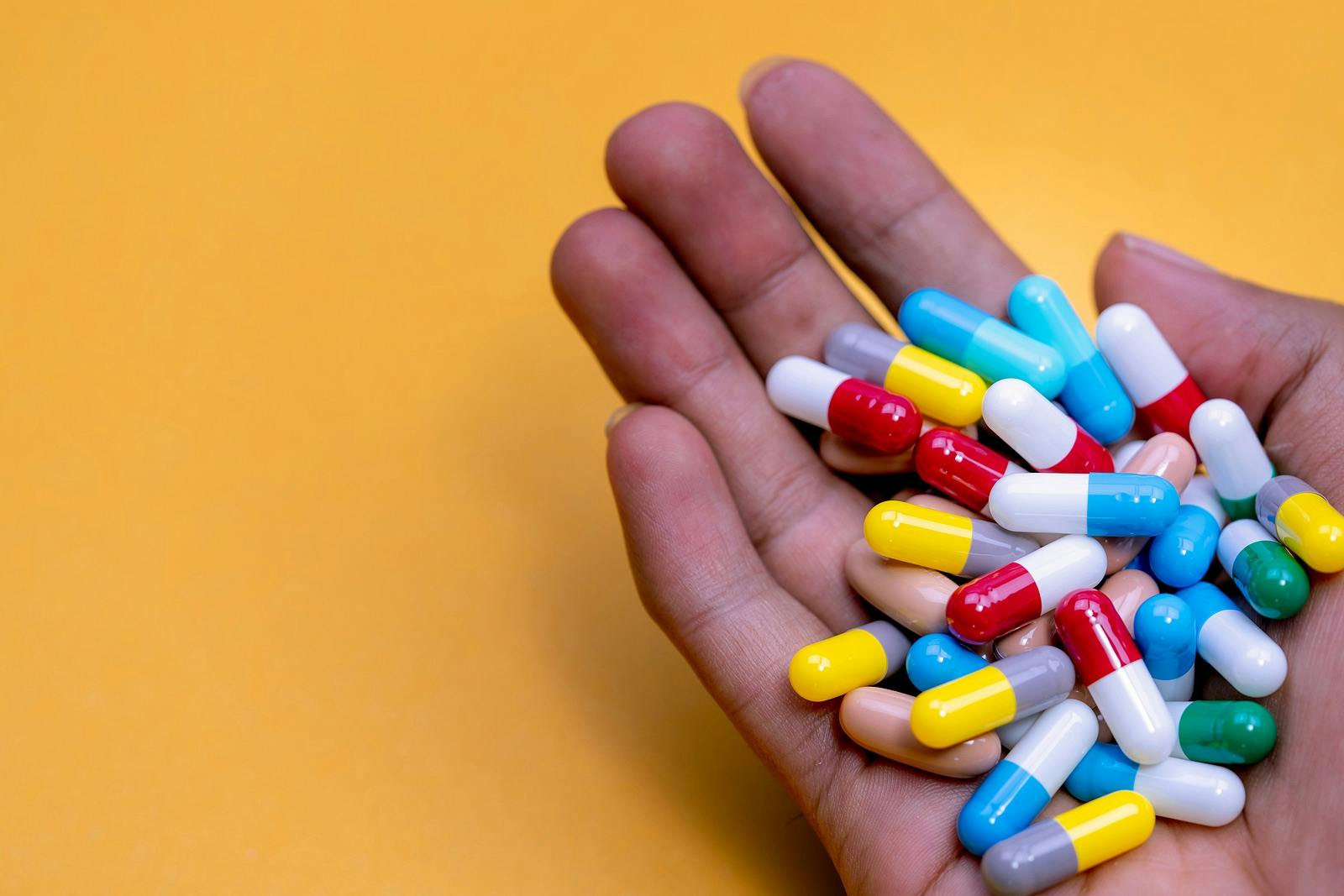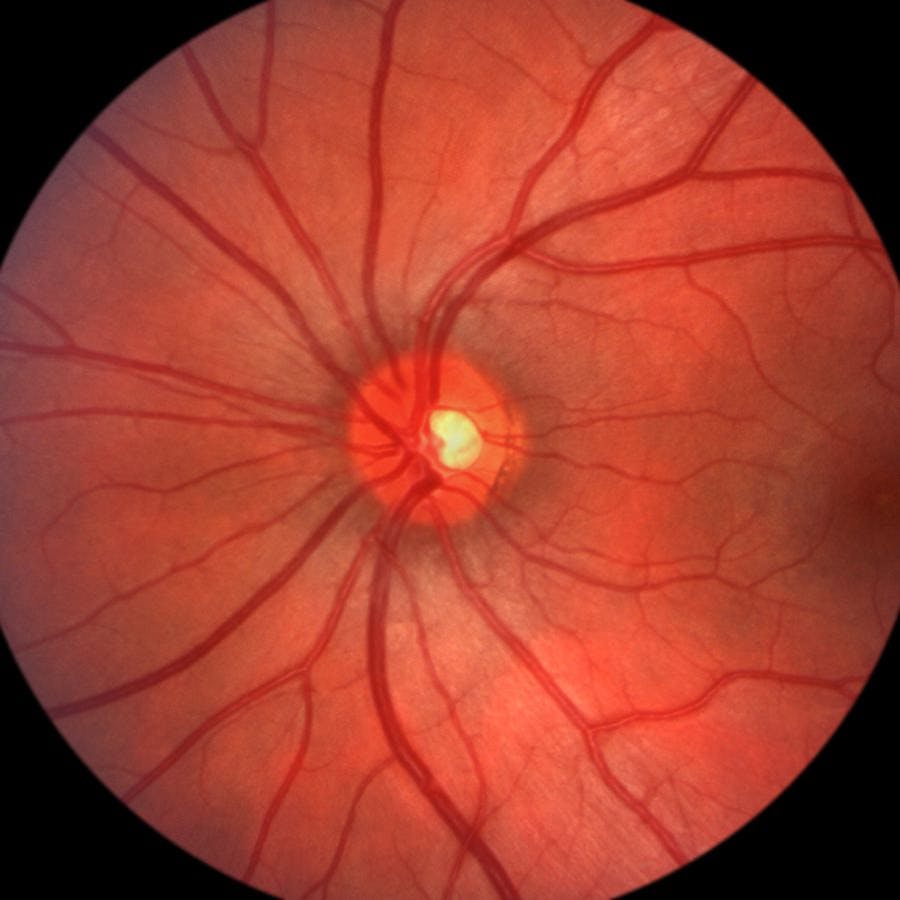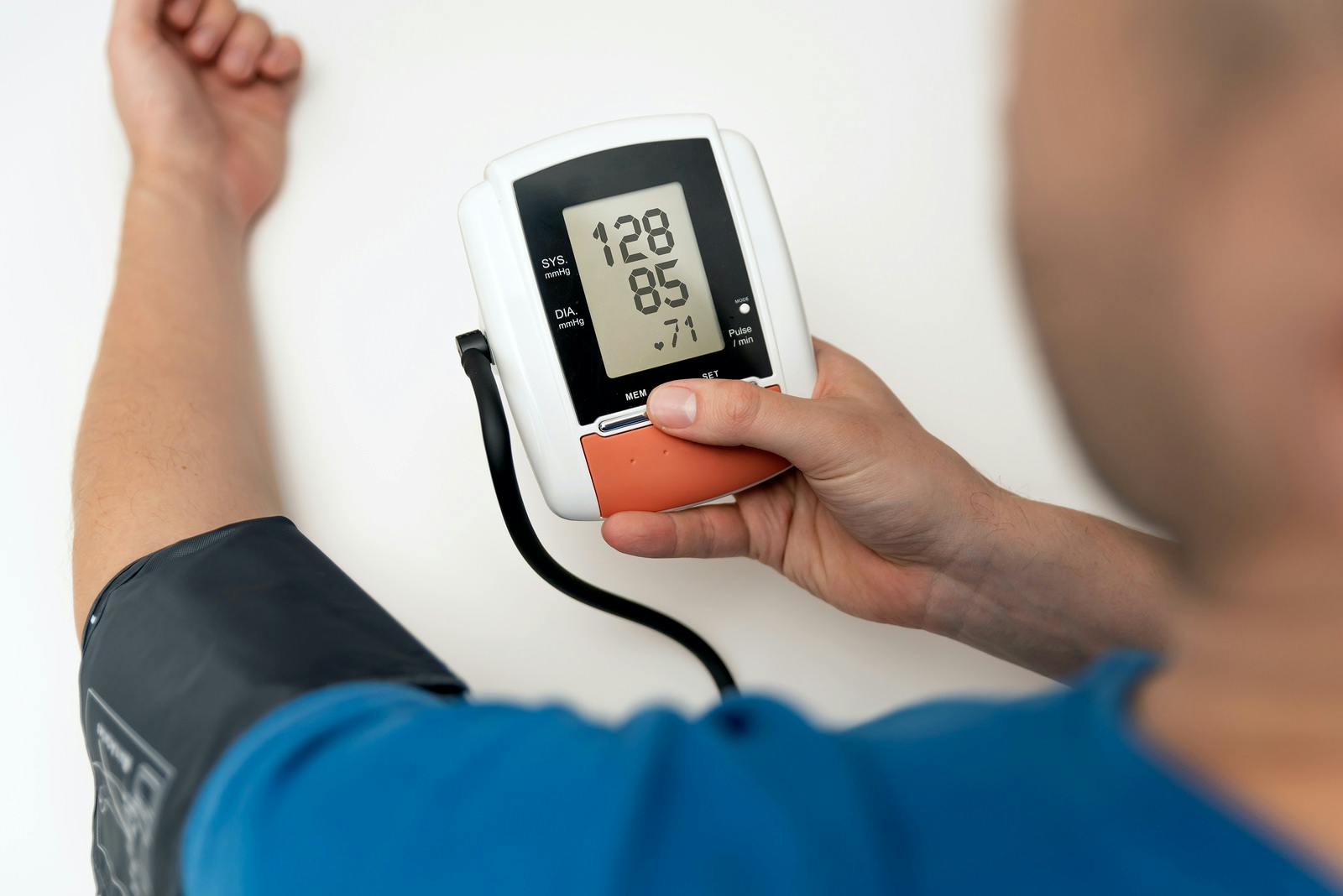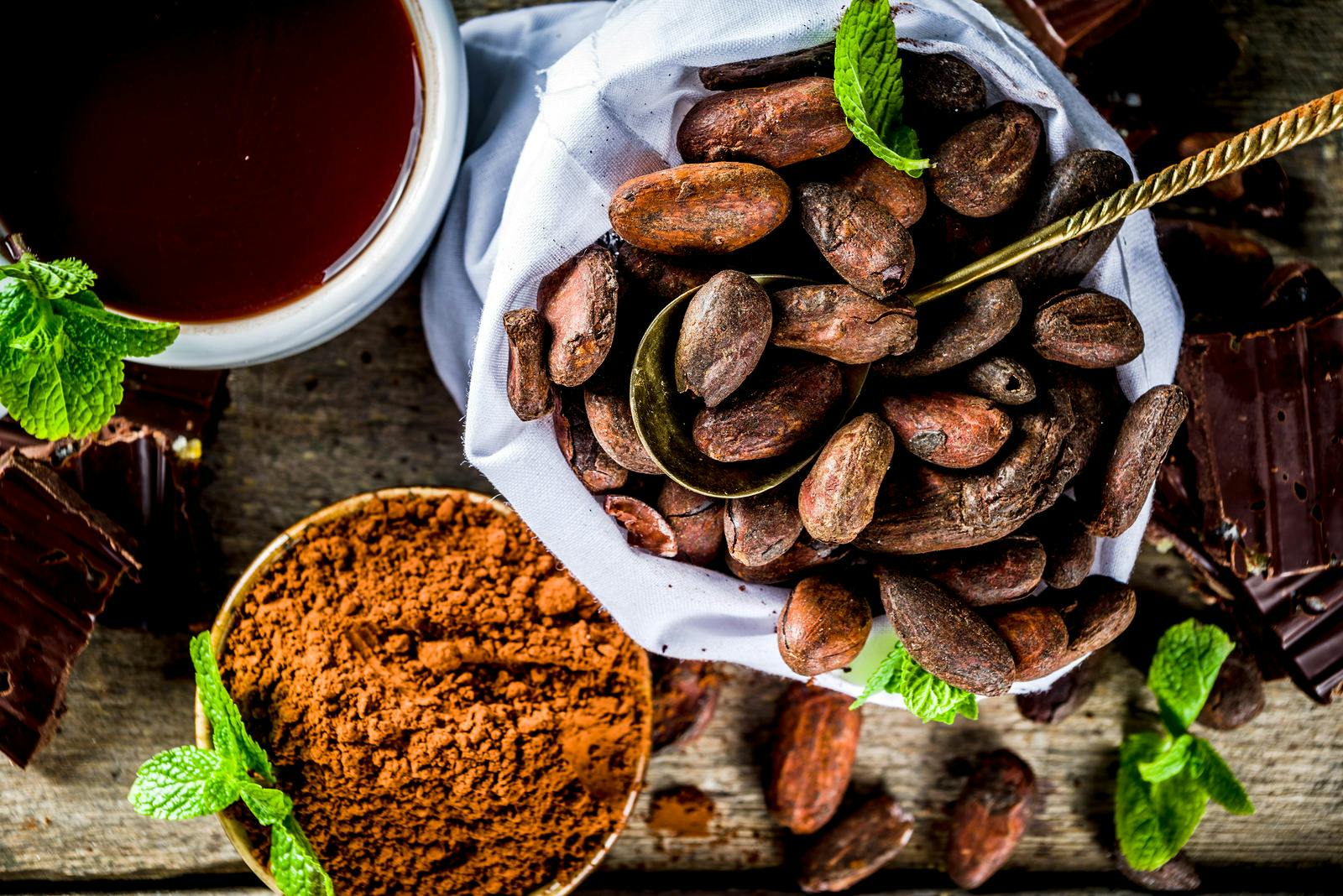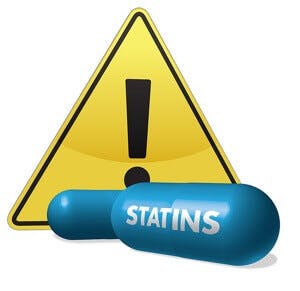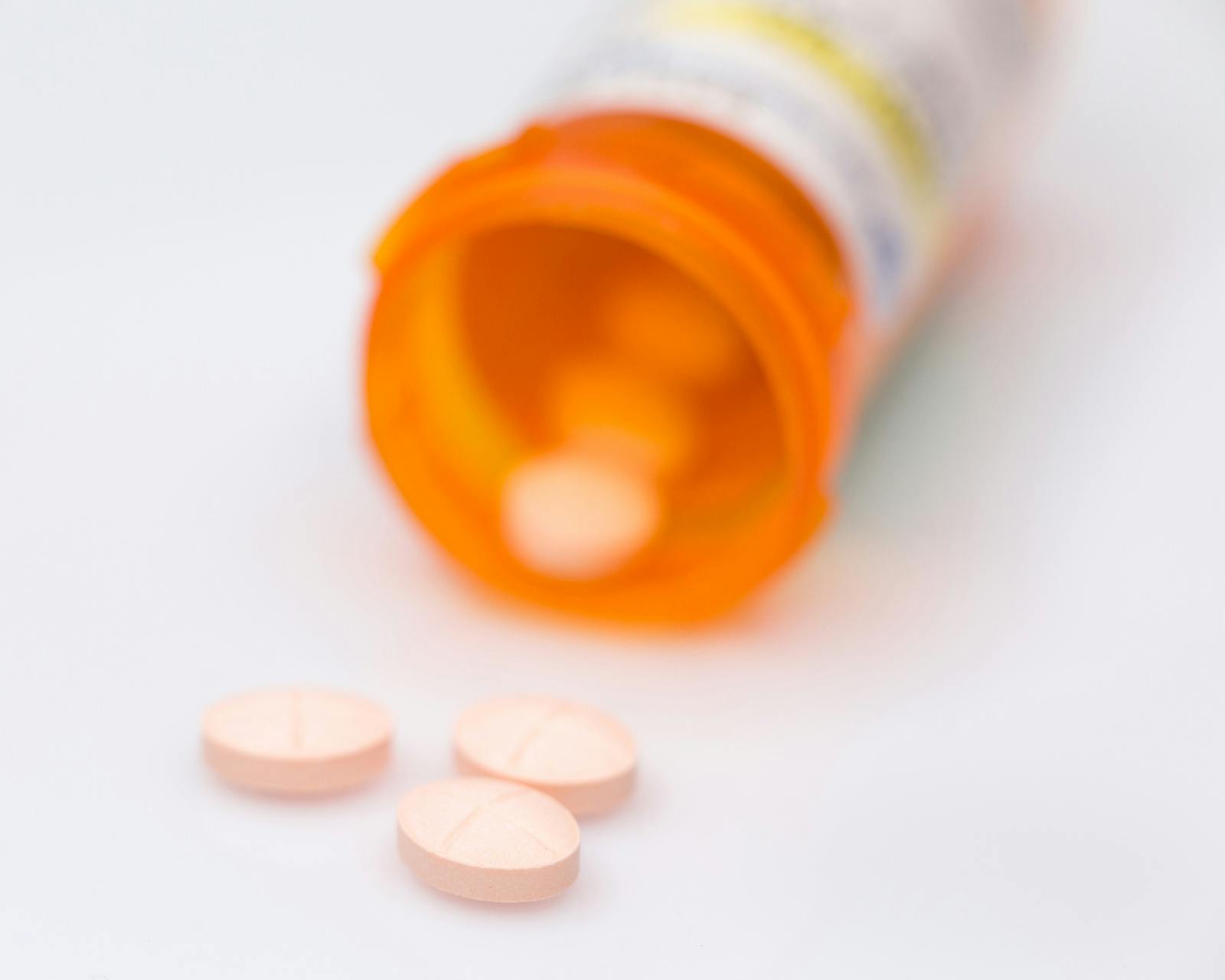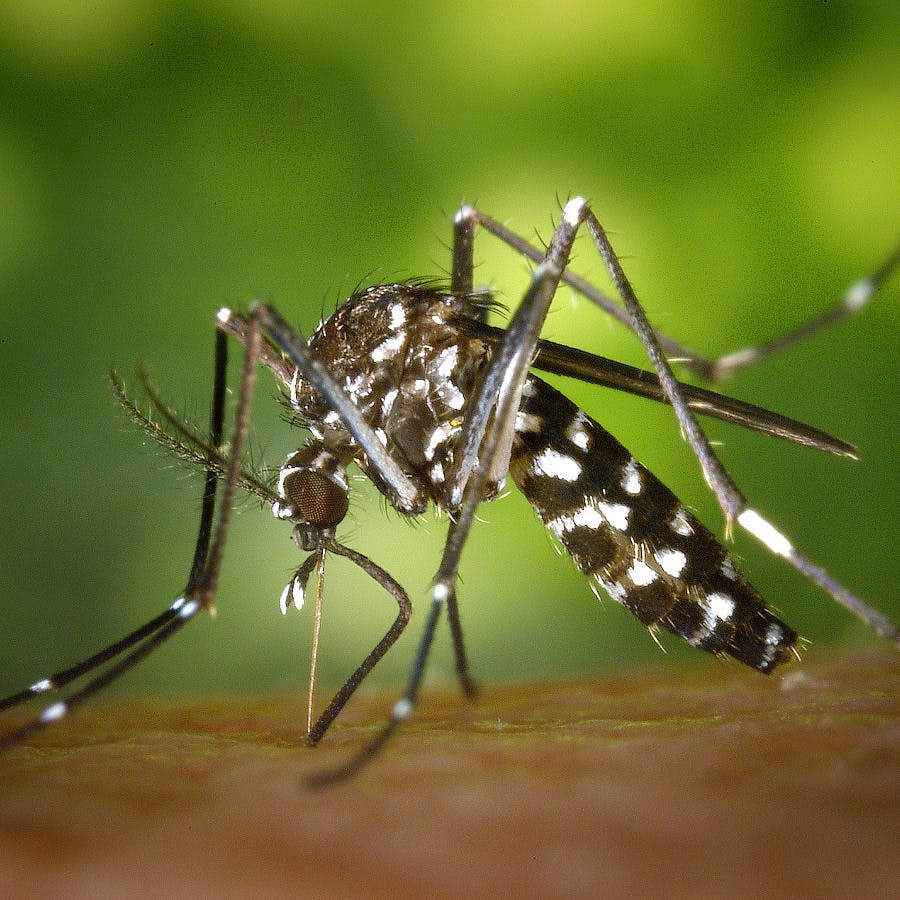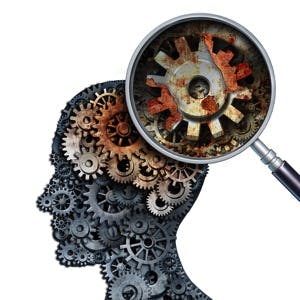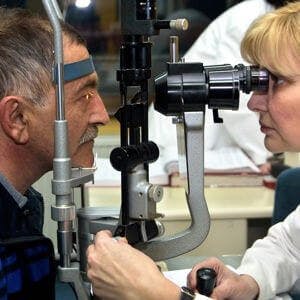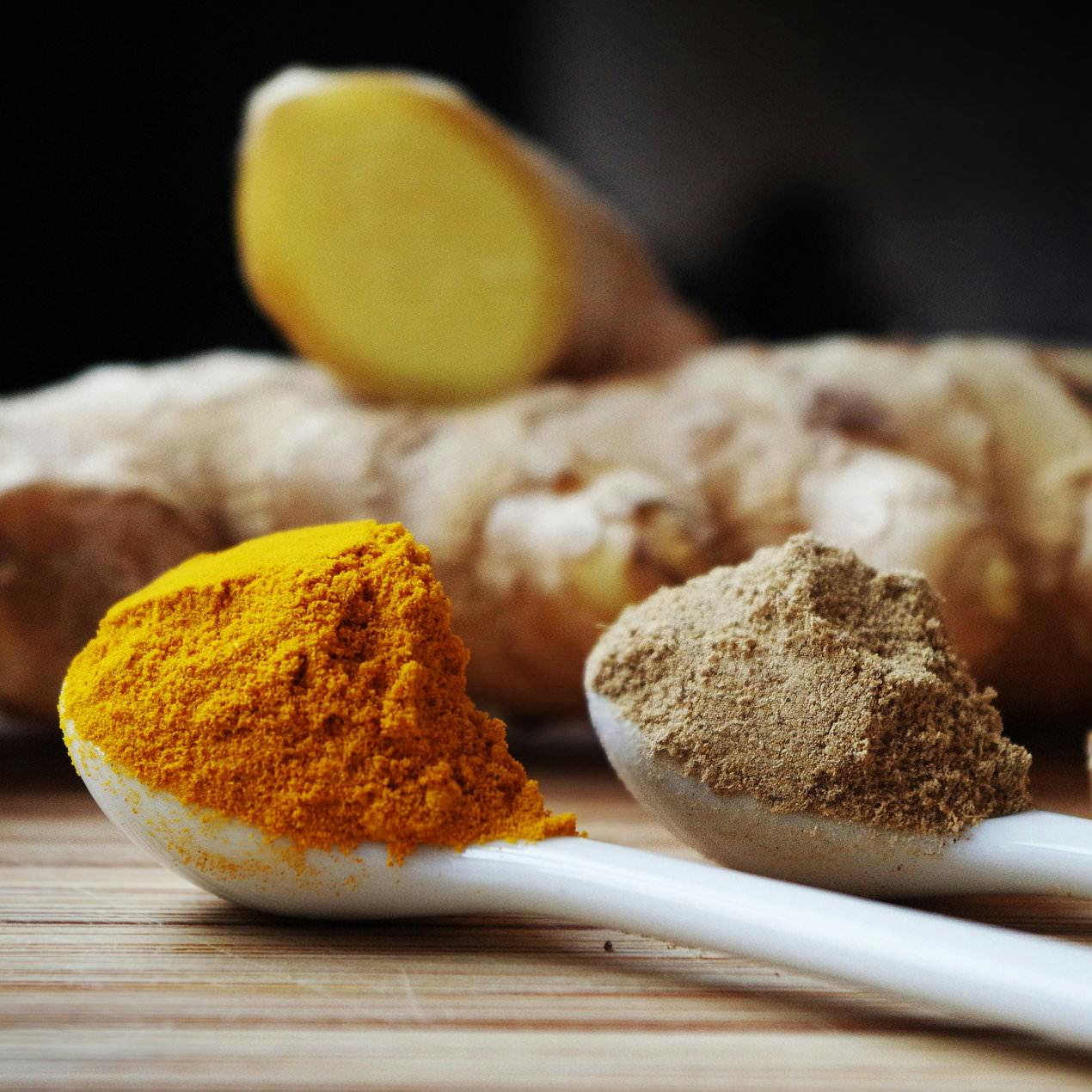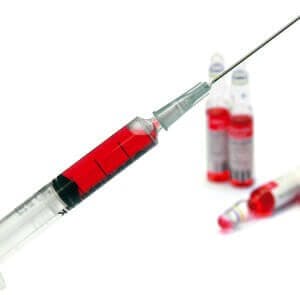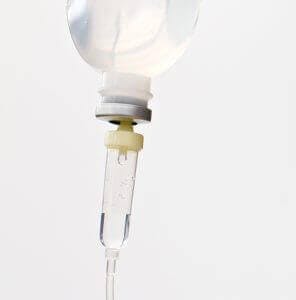Articles categorized as Cognitive Dysfunction
Could Step Counters Help Us Ward Off Dementia?
In studies that coupled step counters with coaching by health professionals, volunteers increased their physical activity.
Should You Be Taking Vitamin Supplements?
Many medications can interfere with good nutrition. If you are taking pills for certain conditions, perhaps you should be taking vitamin supplements.
What Should You Eat to Reduce Your Risk of Dementia?
Studies suggest produce rich in flavonoids and folate are among the foods you should eat to reduce your risk for dementia.
Will Olive Oil Protect Your Brain?
Both people and mice getting extra-virgin olive oil in their diets had better cognitive function. It could protect your brain as well.
Could A PERSONALIZED Exercise Program Save Your Brain?
Randomized controlled trials answer the question: Could exercise save your brain? with yes. Following a DASH diet as well may help even more.
How Can You Keep Your Brain Healthy?
Staying mentally active and following a diet rich in colorful produce can help you keep your brain healthy. Having fun helps too!
Surprising and Scary Gabapentin Side Effects
Doctors are prescribing gabapentin off-label for pain. Gabapentin side effects, such as dementia, can be serious. Stopping can be difficult.
Will Your Diet Help You Avoid Dementia?
People who eat lots of vegetables and healthy fats like olive oil may avoid dementia better than those following a pro-inflammatory diet.
Deprescribing: Can You Ever Stop Taking So Many Pills?
If people take lots of pills they may start experiencing drug side effects. Getting off the med merry-go-round has a new name: deprescribing.
Can You Prevent Alzheimer Disease with L-Lysine?
Data linking herpes virus infections (HSV-1) with a higher risk of dementia offer hope that taking L-lysine might prevent Alzheimer disease.
Personalized Approach Can Lower Risk for Dementia
Older people have a lower risk for dementia if they can address several risk factors such as sedentary habits, depression or hypertension.
Could Olive Oil Make Weight Loss Easier?
Could extra virgin olive oil rich in plant phenols make weight loss easier? Perhaps we should all use olive oil.
What Is the Evidence That Cocoa Flavanols Improve Health?
Several studies lead to the conclusion that cocoa flavanols improve health. They can improve blood vessel function after a high-fat meal.
Could Aggressive Blood Pressure Control Save Your Brain?
A new Chinese study suggests that aggressive blood pressure control may reduce the chance of dementia. How impressive are the data?
What Can Help You Stay Sharp as You Age?
Maintaining physical activity and consuming blueberries, turmeric and rosemary may help you stay sharp as you age. Which will you try?
Are Non-Sugar Sweeteners a Healthy Choice?
Non-sugar sweeteners may not offer the expected health benefits. In fact, sugar substitutes may increase inflammation or blood clotting.
Helping Your Heart Means Boosting Your Brain
A study of French senior citizens shows that if you do a good job of helping your heart with diet and exercise, you also dramatically lower your likelihood of dementia.
Will Spices Help Protect Your Memory?
Certain herbs, such as basil, lemon balm, rosemary and sage, as well as some spices may help protect your memory.
Can Your Medicine Cause Confusion or Memory Loss?
What do you call brain fog–confusion, forgetfulness or memory loss? It can be devastating! Do some drugs increase the risk of dementia?
Antidepressant Drugs and Dementia: The Link Gets Stronger!
People think Alzheimer disease is caused by bad genes or bad luck. But data link anticholinergic and antidepressant drugs and dementia.
Vitamin B12 Deficiency Can Cause Cognitive Problems
Older people are at risk for vitamin B12 deficiency, which can lead to cognitive difficulties. Certain medications and a vegetarian diet increase the risk.
Microwave Weapons and Warfare: The Spy War Cover-Up!
A 60 Minutes exposé in 2024 revealed that microwave weapons attacked US diplomats. I've known this for 50 years! The cover-up is unraveling!
Show 1416: Exposing Fraud and Arrogance in Alzheimer’s Research
An intensive examination of research publications on Alzheimer's found that several showed telltale signs of fraud and arrogance.
Memory Makers or Memory Takers: Medications and Dementia
An ambitious review of studies shows links between medications and dementia. Some increase the risk, while others protect the brain.
What Is the Difference Between Healthspan and Lifespan?
The US has a large gap between healthspan (years free of disease and disability) and lifespan (total years lived). Exercise could improve it.
Show 1412: Beyond Amyloid: The Science That Could Change the Course of Alzheimer Disease
A personalized approach considering multiple factors may be helpful for changing the course of Alzheimer disease.
Will a Mediterranean Diet Benefit Your Brain?
To get the Mediterranean diet benefit for cognitive and cardiovascular health, eat mostly plants, use olive oil and avoid processed food.
Microbes on the Mind: How the Brain Microbiome Affects Dementia Risk
Researchers plan to find out if infections disrupting the brain microbiome are responsible for the devastation of dementia.
Choline Boosts Brain Power Throughout Lifespan
Eggs are rich in cholesterol but also in choline. Several studies show that adequate choline boosts brain function in older adults.
Can a Mediterranean-Style Diet Protect Your Brain?
You don't have to live near the Mediterranean Sea to benefit from a traditional diet rich in vegetables, legumes, fruit and olive oil.
Can Low Blood Pressure Raise Dementia Risk in Older Adults?”
Is low blood pressure always healthy? Many think that 120/80 is ideal. Research shows that low BP may sometimes raise dementia risk in elders
Which Berries Are Best for Your Brain?
Including berries in your meals–blackberries, blueberries, raspberries or strawberries–should improve your chance of successful brain aging.
How to Eat to Maintain Your Brain
To maintain your brain at its proper size and best function, eat a diet high in nutrients. That means plenty of veggies and not many cookies.
Show 1394: Viruses, Vaccines and Alzheimer Disease
Increasing evidence links viral infection to a higher risk for dementia. LIsten for good news about vaccines and Alzheimer disease.
New Blood Tests for Alzheimer Disease
Scientists hope that a blood test for Alzheimer disease that measures a protein resulting from nerve cell breakdown will permit early diagnosis.
Show 1374: Marvelous Medicinal Mushrooms (Archive)
In this episode, learn about medicinal mushrooms that can modulate the immune system or possibly reduce the risk of dementia.
Sauna Bathing and Its Health Benefits
Regular sauna bathing lowers blood pressure and other risk factors for heart disease. It may also help prevent lung disease and dementia. Exercise plus sauna is synergistic.
Can Your Gut Microbiome Affect Your Memory?
The gut microbiome has an important impact on emotional resilience in humans and cognitive capability in mice.
June Is Brain Health Awareness Month
Use discount code BRAIN2024 to get a 20% discount on CocoaVia™ products for cognitive function during Brain Health Awareness month.
Could a Daily Multivitamin Help You Stay Sharp?
The COSMOS-MInd study show that seniors taking a daily multivitamin are more likely to stay sharp. A high-veggie diet might also help.
Conflicting Results from Anti-Alzheimer’s Treatments: Brain Shrinkage?
The FDA approved 2 new anti-Alzheimer’s treatments. Leqembi is left. Will it approve donanemab? MABS may shrink the brain. Isn't that Bad?
Do Older People Improve Their Memories with Exercise?
Active people may improve their memories with a single exercise session. To make the benefits last, they need to keep exercising.
Can You Avoid Post-Operative Cognitive Dysfunction?
The anesthetic propofol may be somewhat less likely to result in post-operative cognitive dysfunction. Speak with the anesthesiologist before your surgery.
Show 1366: How a Pharmacist Helps Doctors with Deprescribing
An expert pharmacist helps healthcare providers determine which medicines may be doing more harm than good. The next step is deprescribing.
Show 1364: Staying Sharp Through Better Hearing
Studies show hearing impairment is associated with cognitive decline, but with better hearing people stay sharp longer.
Calculating the Burden of Dementia in Dollars and Cents
The burden of dementia is heavy. Not only are there physical and emotional challenges that come with cognitive decline, medical costs soar.
Adult Education Courses Help Seniors Reduce their Risk of Dementia
When middle-aged people participate in adult education courses, they maintain many aspects of intelligence and reduce the risk of dementia.
Could Research in Mice Change How We Look at Alzheimer Disease?
Fluorescent "flowers" in mouse brains give us a new look at Alzheimer disease. And laboratory mice given a dietary supplement run mazes well.
Soccer Players Putting Their Brains in Danger
For soccer players, heading the ball may be bad for the brain. Should soccer balls come with warning labels? Scottish researchers say yes!
Can You See Alzheimer Disease with Retina Scan?
A type of retina scan known as optical coherence tomography angiography, or OCTA, can detect changes indicative of Alzheimer Disease before symptoms appear.
Low Vitamin D Levels Linked to Risk of Alzheimer Disease
Older people with low vitamin D levels are more vulnerable to dementia. A new study shows that taking vitamin D may help prevent dementia.
There Is Science to Support Cocoa for Brain Health
New study shows how cocoa flavanols work to improve cognitive function. Can you use high-flavanol cocoa for brain health? How can you find it?
Could Sunshine Be Responsible for Keeping the Brain Sharp?
Would sunshine be responsible for better cognitive function? Studies are suggestive, not definitive, but it does seem possible.
Show 1341: Lessons Learned from Long Illness
Millions of Americans suffer with long illness. Conventional medicine doesn't always have treatments for these conditions.
Is Donanemab a Breakthrough Against Alzheimer’s?
Donanemab is the latest anti-amyloid drug against Alzheimer's disease. Is it a breakthrough? Here's the back story.
Do Blueberries Help Older People with Memory?
Numerous studies show that anthocyanins in blueberries help lower systolic blood pressure and improve cognitive performance of impaired individuals.
Lion’s Mane Mushroom Improves Memory in Mice
Compounds in Lion's Mane mushrooms help nerve cells connect and boost memory in mice. Could they help slow cognitive decline in humans?
Can Cinnamon Make You Smarter?
Research in mice shows that cinnamon-laced chow can help slow learners improve their performance. Could cinnamon make you smarter?
Will Flu Shots Protect You from Alzheimer Disease?
Several studies suggest that flu shots protect older adults from dementia as well as from infection. Regular immunizations seem to work best.
Show 1298: The Health Benefits of Tart Cherries (Archive)
This week we interview two scientists who describe the benefits of tart cherries for mental alertness and physical stamina.
Brain Changes from COVID Affect Memory!
Are you experiencing more brain fog than usual? Did you catch COVID without even knowing it? Brain shrinkage and cognitive decline can result
Show 1318: Challenging Dogma About Alzheimer Disease and Depression
This week, we speak with two scientists who are challenging dogma about how the brain works and how we can treat it.
Do Corticosteroids Like Prednisone Shrink the Brain?
Steroids (corticosteroids, glucocorticoids or cortisone-like drugs) are popular. A new study asks if drugs like prednisone shrink the brain.
Do ADHD Drugs Help People with Alzheimer Disease?
A meta-analysis indicates that ADHD drugs like Ritalin or Strattera could help people with Alzheimer disease improve cognition.
Will COVID-19 Increase the Risk for Later Dementia?
Neurologists worry that SARS-CoV-2 infection may affect the brain and raise the possibility of later dementia as a consequence.
A Supplement to Help You Maintain Cognitive Function
A new supplement, Memory & Focus, from CocoaVia is designed to help you maintain cognitive function at optimal levels.
How to Overcome Cognitive Impairment with Blueberries
Blueberry powder may be able to reverse mild cognitive impairment. Older people getting cranberry powder have better visual memory.
Should You Drink Cherry Juice for Your Brain?
According to a study, older people who drink cherry juice score better on tests of cognitive function after three months.
What Is It About Coffee That Protects Your Brain?
Scientists tested dark roast and light roast coffee as well as decaf to see what components of coffee may prevent amyloid plaques.
Are You Suffering Senility or Vitamin B12 Deficiency?
Symptoms of a vitamin B12 deficiency may mimic senility, with poor concentration, constipation, balance problems and tingling or numbness in hands or feet.
Show 1273: Finding Ways to Manage Long COVID
Some people who were infected with SARS-CoV-2 continue to suffer symptoms for months afterwards. How can they manage long COVID?
Do Omega-3 Supplements Improve Cognitive Performance?
Young adults were able to improve cognitive performance on a range of tests when they took EPA-rich fish oil for six months.
Should You Delay Retirement to Save Your Brain?
Many people are retiring early because of the pandemic. But a new study suggests that if you delay retirement it may preserve brain function.
Show 1269: How the First Survivors of Alzheimer’s Saved Their Brains
Dr. Dale Bredesen has invited the first survivors of Alzheimer's to describe how they saved their brains with his protocol.
Show 1263: Can We Reverse the Aging Process?
A few simple measures could delay or reverse the aging process. Take care of your mental health, don't smoke, skip meals and sleep enough.
Which Blood Pressure Pills Help Protect Memory?
ACE inhibitors that can get into the brain may protect memory in older adults. ARBs that cross the blood-brain barrier also seem to work.
Do Statins Affect Memory or Scramble Your Brain?
Millions take statins to prevent heart problems. Can statins affect memory? This question still remains highly controversial after decades.
Eating Right for Better Brain Power with Age
Exercise and diet helps older people maintain their brain power. The MIND diet combining the DASH diet and the Mediterranean diet seems best.
What Steps Can You Take to Keep Your Brain Healthy?
If you'd like to keep your brain healthy for as long as possible, stick with a Mediterranean-style diet and meditate every day.
Can Skimping on Sleep in Middle Age Lead to Dementia Late in Life?
Middle aged people skimping on sleep may be putting themselves at risk for dementia in old age.
New Study Shows Cocoa Compounds May Help Improve Memory
The latest study shows that taking high-dose cocoa flavanols can help improve memory for lists. People with poor diets get the biggest boost.
Will Lots of Veggies on the Menu Help Your Brain?
Scientists find that seniors who eat lots of veggies full of carotenoids are less likely to have plaques and tangles of Alzheimer disease.
Will Cheese and Wine Save Your Brain?
Cheese and wine were identified as foods associated with better cognitive function over the long term. Will you indulge?
Show 1237: Improving Your Mood With Food
It's easy to feel depressed or anxious in times like these, but you can improve your mood with food. Listen and learn how!
Show 1231: How Can Women Reduce Their Risk for Dementia?
Find out how women can reduce their risk for dementia with diet, exercise and the proper timing of hormone therapy.
COVID-19 Has Neurological Effects in Most Patients
Four out of five patients recovering from COVID-19 reported neurological effects such as headache, confusion or dizziness at some point.
Can COVID-19 Symptoms Last for Weeks?
Fatigue, headache, cough, shortness of breath and other COVID-19 symptoms last for weeks or even months after recovery in some people.
Show 1220: How We Can Learn Faster and Better and Remember More
Get excellent strategies to help you think clearly, learn quickly and remember more. Jim Kwik makes it fun!
Does Eating Fish Protect the Brain from Pollution?
A study finds that, for older women, eating fish a couple of times a week can provide protection against brain shrinkage caused by air pollution.
Show 1219: How to Achieve Maximum Memory Fitness
By avoiding social isolation, following a healthful diet and engaging in physical and cognitive exercise, you can achieve maximum memory fitness.
Are There Cognitive Benefits to Moderate Drinking?
A study among older Americans finds that moderate drinking is linked to cognitive benefits for white participants. Too much is not good!
Show 1216: How Sugar Interferes With Healthy Decisions
When we need to make healthy decisions about what we eat and drink, we need to find ways to deflect the allure of sugar for our brains.
Show 1214: How to Defend Your Brain During the Pandemic and Beyond
Dr. Dale Bredesen describes how to boost your immune system to defend your brain from infection, toxins and inadequate nourishment.
Will Blood Pressure Medicines Prevent Alzheimer Disease?
In a new meta-analysis, the investigators found that people taking blood pressure medicines are slightly less likely to develop dementia.
How Can You Make Your Own Rosemary Water?
If you want to keep your brain healthy over the years, don't smoke, do exercise, get enough sleep and sip rosemary water. You can make it yourself.
Show 1132: Are Infections to Blame for Alzheimer Disease? (Archive)
Pharmaceutical scientists have been striving to get amyloid plaques out of the brain, but new research suggests that amyloid may be acting to protect the brain from microbes. What are the implications
Surgery Doesn’t Boost Risk of Alzheimer Disease
Experts have been concerned that anesthesia for surgery might boost the risk of Alzheimer disease. Doctors from the Mayo Clinic have reassuring news.
Can You Lower Your Dementia Risk With a Few Drinks?
If you want to lower your dementia risk with a drink or two, stick to just one or two a week. LIght drinking is linked to less plaque in the brain.
Stalked by the Fear That Dementia Is Stalking You
Should you be tested to see if you are likely to develop dementia? The answer is different for everyone. What will you do with the results?
Can You Prevent Dementia With Grape Seed Extract?
Rodent research shows that grape seed extract can slow cognitive decline and the development of dementia. How well will it work for humans?
A Big Statin Controversy: Do Statins Impair Memory?
Statin-type cholesterol-lowering drugs such as atorvastatin, lovastatin, simvastatin and rosuvastatin remain highly popular. Can such statins impair memory?
Vitamin B12 Lack Led to Balance and Memory Problems
A serious vitamin B12 lack due to PPI medication, vegan diet, or stomach inflammation can cause trouble with balance, cognition and fatigue.
Will Statins Wreak Havoc With Your Memory?
Sometimes people fear that statins wreak havoc with cognitive function. A recent Australian study found no evidence of this effect.
Has a Chinese Company Found a Cure for Alzheimer’s?
Drug companies have long been thwarted in developing a cure for Alzheimer's disease. Now a Chinese firm is taking a different approach to the problem.
Soccer and Brain Damage: Kids and Headers?
Soccer is a wonderful sport. It requires extraordinary stamina and great team play. Kids love it. But is there harm to the brain when players head the ball?
Show 1182: How You Can Use Exercise as Medicine
Doctors who use exercise as medicine offer personalized prescriptions for activity. This can be as powerful as medications for promoting health.
Show 1180: How to Eat to Nourish Your Brain
Do you know what foods you should eat to nourish your brain? You can improve your outlook and cognitive function by getting the 21 essential nutrients.
Don’t Count on Stimulants for Better Memory
Research shows it's a mistake to take stimulants for better memory and attention. The gains are tiny, and the drugs interfere with getting good sleep.
Show 1174: What to Do About Skeeter Syndrome
This week, share your thoughts and learn about skeeter syndrome, how certain common drugs affect your ability to think and statin side effects.
Falling for Scams Is a Sign of Cognitive Impairment
Older adults who show signs of falling for scams may be at risk for mental deterioration over the next several years.
FDA Cracking Down on Dietary Supplements for Dementia
Some companies promoting products to treat Alzheimer's disease have received warning letters from the FDA: Don't sell dietary supplements for dementia!
Are Leaky Blood Vessels A Culprit Behind Alzheimer’s Disease?
Alzheimer's disease is devastating. No one knows what causes dementia. New research reveals that leaky blood vessels may be a key factor. What causes this?
Men Who Love Veggies Have Better Memory
The Health Professionals Follow-Up Study showed that men who usually eat six servings or so of vegetables daily have better memory and cognitive ability.
Will New MRI Help Doctors Detect Alzheimer Disease?
A new MRI technique, diffusion tensor imaging, may detect Alzheimer's disease before it damages cognitive function noticably.
Are Your Eyes the Window to Your Brain?
New technology turns your eyes into the window to your brain. A non-invasive scan of the retina can tell who is headed for Alzheimer disease.
Do People Who Eat Fish Grow Old More Healthfully?
A long-running study suggests that people who eat fish and shellfish regularly are less prone to chronic disease as they age.
How Much Exercise Do You Need to Boost Your Brain?
Even a short session in the gym–just ten minutes–may boost your brain by increasing the connections between the dentate gyrus in the hippocampus and certain parts of the cortex.
No Study Support for Fish Oil Soothing Dry Eyes
Although fish oil has a reputation for soothing dry eyes, a recent randomized controlled trial found that placebo capsules of olive oil worked just as well.
Will Decaf Coffee Help You Keep Your Edge?
Coffee drinkers are less likely to develop dementia, but not everyone can drink it. Is decaf coffee just as good?
Why Do Nursing Homes Dispense Risky Antipsychotic Drugs?
Too many nursing home residents are being given highly sedating antipsychotic drugs, even though these medicines may hasten death in people with dementia.
Will Curcumin Improve Cognitive Ability in Seniors?
Older people with mild memory problems improved their cognitive ability by taking curcumin every day for a year and a half.
No Good Evidence on Preventing Dementia
Comprehensive reviews of research find no single intervention works for preventing dementia. Combining physical and mental training with diet might help.
Help Yourself to Leafy Greens for Better Brain Power
One study of an older cohort found that people who eat a serving of leafy greens every day have much slower cognitive decline over the years.
Memory Is Better with Synchronized Brain Waves
Synchronized brain waves during sleep appear to be linked to better memory for a recently learned task. Aging brains coordinate waves less well.
What Will Doctors Do When Baby Boomers Retire?
Is the medical profession ready when baby boomers retire? No! A tidal wave is coming and modern medicine is not ready. How can you protect yourself?
Seeking a Super Smoothie for Everyday Health
Are your smoothies too sweet? Too many carbs? How about Joe's Brain Boosting Super Smoothie with lots of protein or a Beet Juice Smoothie to lower BP?
What Is Your Ideal Smoothie to Help with Pain?
Add spices to your ideal smoothie for pain relief and extra brain support.
Get Magnesium Just Right to Prevent Dementia
The right amount of magnesium may help prevent dementia–not too much, not too little. Try to eat lots of green leafy vegetables, legumes and nuts.
Can You Dream Away Dementia?
Older people who spent less time in dream sleep were more likely to be diagnosed later with dementia.
Is Highly Variable Blood Pressure a Red Flag?
Elderly people with highly variable blood pressure measurements at home were twice as likely to develop dementia as those with more stable blood pressure.
Why You Should Care About Rising Deaths from Alzheimer’s Disease:
Do you know someone with Alzheimer's disease? Can anything be done to reverse the terrible toll on caregivers? Medicaid cutbacks could be disastrous.
To Think Better, Get Your Exercise!
An Australian meta-analysis finds that people over 50 who exercise regularly do better on cognitive tests: aerobic, weight-lifting & tai chi all work.
How to Help Exercise Boost Your Brainpower-Drink Beet Juice First
Older volunteers who exercised after drinking beet juice first increased their brain neuroplasticity and strengthened their neural connections.
Alarming Anticholinergic Load Scrambles Brain
Taking many meds that interfere with the brain chemical acetylcholine can add up to a massive anticholinergic load, brain fog and memory problems.
Are Super Snoozers at Risk for Dementia?
Older adults who usually sleep more than nine hours nightly appear to be at a greater risk for dementia in the next decade.
Can Sweating in the Sauna Help Your Brain?
Finnish men who frequented a sauna several times a week for several decades were significantly less likely to develop dementia.
Could You Improve Your Memory with Cocoa Every Day?
Can regular consumption of cocoa flavanols improve your memory? Several studies suggest that it might, while one reader offers a testimonial.
Who Needs Vitamin D and Why?
A Chinese study show cognitive decline is worse in those with too little vitamin D, so anyone who wants to stay sharp needs vitamin D.
Did Ginkgo Biloba Keep His Mind Sharp?
Ginkgo biloba is a Chinese herb with a reputation for fighting cognitive decline. This reader claims it is keeping his mind sharp. Is he right?
How to Delay Dementia with Acupuncture
A meta-analysis of five controlled trials seems to indicate that acupuncture can help delay dementia. So can regular physical activity.
Can You Protect Your Brain with Postmenopausal Hormones?
In a randomized, placebo-controlled trial, women taking postmenopausal hormones did just as well on cognitive tests, but no better, than those on placebo.
How to Boost Your Brain Power with Beverages
Beverages rich in polyphenols such as grape juice, cocoa or high-flavanone orange juice appear to improve cognitive function.
Why Should Metformin Users Watch Their Vitamin B12?
Whether taken to treat or prevent diabetes, or for another purpose, metformin users should have vitamin B12 levels monitored regularly.
Low Vitamin D Linked to Cognitive Decline
Seniors with low vitamin D blood levels are at greater risk for dementia or memory loss. Would supplements help? We don't know.
Elders Did Not Boost Brain Power with Exercise
Older people randomly assigned to twice-weekly exercise classes for two years improved their test scores no more than those who merely stretched their arms.
Common Medicines Throw a Monkey Wrench Into Mental Machinery and Memory
Common medications, both OTC and prescription can contribute to memory problems and confusion. Is someone you love taking an anticholinergic drug?
Trans Fats Are Bad for the Heart and Bad for the Brain
Baked goods and snacks that are high in trans fats are bad for verbal memory.
Mediterranean Diets Benefit Aging Brains
When older Spaniards ate a Mediterranean diet rich in vegetables plus olive oil or nuts they performed better on cognitive tests after four years.
High-Cacao Chocolate Combats Midday Slump
A serving of high-cacao chocolate (low in sugar) can help boost attention and alertness in the early afternoon.
Skinny People May Be More Prone to Dementia as They Age
People with lower than normal weight for height appear more likely to experience cognitive difficulties as they grow older. Normal weight may be best.
Study Confirms Chemo Brain Reaction
Cancer patients are not crazy: chemo brain is real!
Cocoa Compounds Boost Brain Function
People consuming large amounts of cocoa flavanols perform better on tests of cognitive function.
CocoaVia in Coffee to Keep Brain Perking
Flavanol compounds from cocoa and berries help maintain good brain function.
Caffeine Boosts Attention and Memory
Johns Hopkins researchers showed a significant increase in memory and attention amongst those given caffeine versus placebo.
Celiac Disease May Mimic Alzheimer’s
Cognitive dysfunction may have an unexpected cause: celiac disease may mimic Alzheimer's. Following a gluten-free diet can help restore the brain.
























